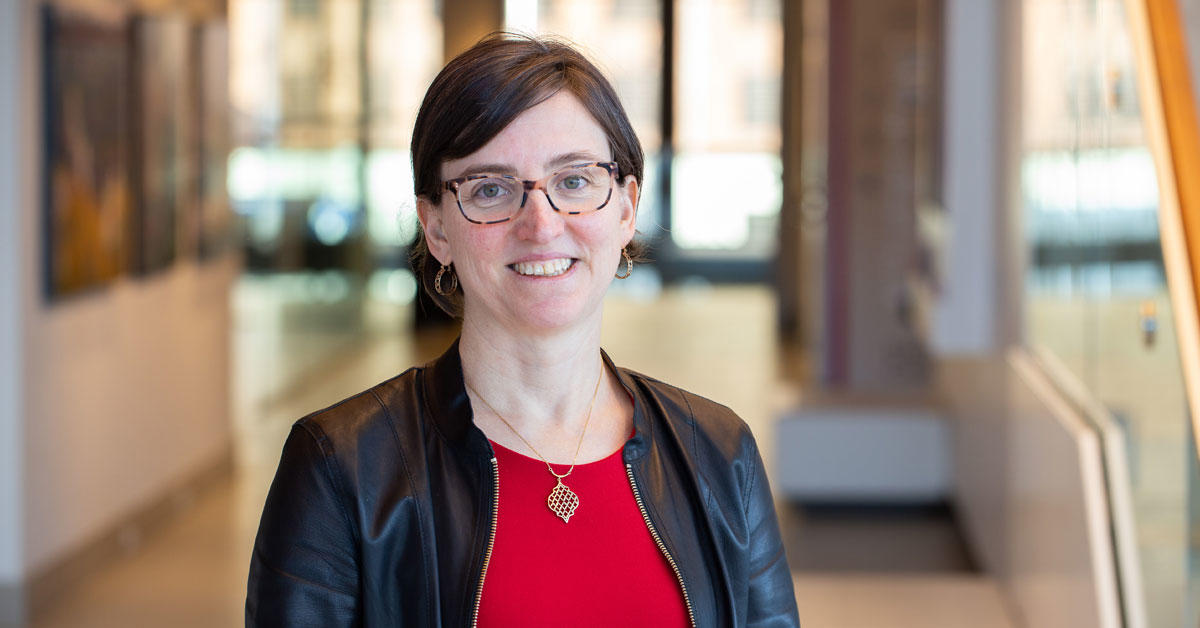“My ambitions for the Faculty are… BIG!” said Marie-Eve Sylvestre, laughing, during an interview shortly after she was named dean of the Faculty of Law, Civil Law Section, in July 2019.
“I would like for the Faculty to be recognized as a leader in teaching and research, with and for the community,” she added.
A year later, many initiatives have been put in place to thoroughly transform this faculty in the areas of teaching, research, student services and alumni relations.
One of the dean’s main objectives is to encourage students to become genuine agents of social change.
Thus, since the start of her term, she has undertaken clinical and support projects as well as research projects involving community partners from various backgrounds. Her ultimate goal is to have students at work on resolving social problems.
Many new developments
- Three outstanding researchers in civil law, private international law, and mental health law and access to justice have been hired, including two at the rank of full professor.
- Prestigious research chairs have been awarded in artificial intelligence, private law, and workplace health and safety law.
- The first Indigenous professor was welcomed in January, strengthening Faculty expertise in Indigenous legal systems and helping decolonize programs.
- A new financial aid program, Parcours de vie exceptionnels, supports students who have overcome socio-economic difficulties or racism and discrimination, while demonstrating leadership.
- The Faculty signed an agreement with Justice Canada to host the first lawyer-filmmaker in residence and counsellor in visual argument. The lawyer-filmmaker will implement the Jurivision project, which will promote knowledge and research about law through audiovisual means.
Coming this fall
“Next year, as always, our community can expect a dynamic, innovative faculty,” promises Sylvestre.
- An online course on the social and legal aspects of COVID-19 was created for the spring-summer 2020 term: 15 or so professors, experts in different areas of law, were mobilized to deal with the many issues raised by the pandemic. The course was very successful and will be offered in the fall.
- The one-year English-language National Program in civil law will be relaunched this fall in a fully virtual format. There will also be a new graduate microprogram in law and technology, also fully asynchronous.
- The first course in law and leadership in a Canadian law school will be offered.
- Courses on agri-food, psychiatric, robotic and artificial intelligence, and video game law.
- A course on legal professions and access to justice, consisting in part of podcast production.
- New training on racism and discrimination, essential for future legal professionals.
“As well, we will create spaces for stimulating virtual exchanges to allow our students to acquire knowledge and our researchers to continue to do engaged, relevant work that serves society. I look forward to catching up with you when fall classes start!”
